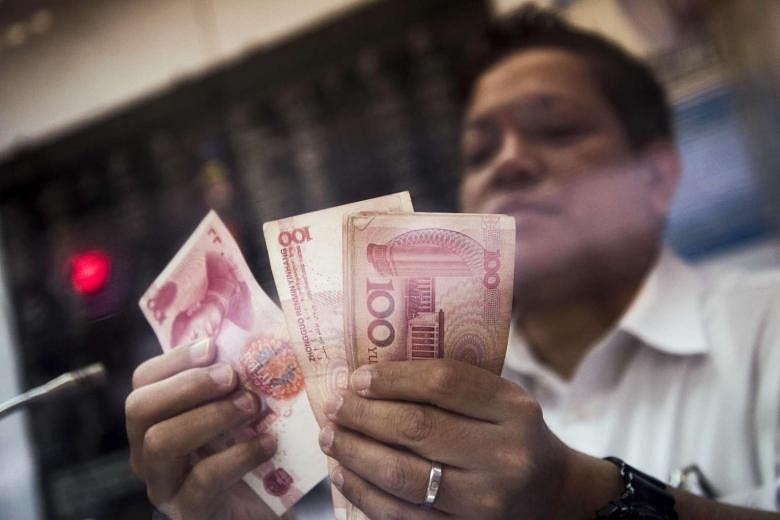BEIJING (BLOOMBERG) - The People's Bank of China sold a record amount of foreign currency in December, more than twice as much as in any previous month, as it stepped up yuan purchases to stem a slide in the currency.
The central bank's foreign-exchange assets tumbled by the equivalent of 708 billion yuan (S$154.8 billion) to 24.85 trillion yuan, data showed on Friday (Jan 15). That compares with a drop of 2.21 trillion yuan for the whole of last year and is similar to the US$107.9 billion slide in the nation's foreign-exchange reserves that was previously reported for December. The yuan fell 1.5 per cent last month, the most since August, when a surprise devaluation was announced.
China has been supporting its exchange rate in both Shanghai and Hong Kong in recent months, seeking to limit depreciation that roiled global financial markets. That support is coming at a growing cost to the nation's foreign-exchange reserves as slowing growth in the world's second-largest economy spurs an exodus of funds.
"The record drop illustrates that capital was leaving at a faster pace and the PBOC supported the exchange rate last month," said Mr Zhou Hao, an economist at Commerzbank AG in Singapore. "The trend of outflows will definitely continue in the coming months as the market expects the yuan to decline further. But the exchange rate will remain stable in the near- term as investors are cautious now due to the PBOC's intervention this week."
The yuan strengthened 0.1 per cent against the US dollar this week in Shanghai as of 12:32 pm local time, after sliding 1.5 per cent in the five days through Jan 8. A Bloomberg replica of a new yuan index composed of 13 currencies and published by the China Foreign Exchange Trade System rose 0.4 per cent this week, trimming this year's loss to 0.9 per cent.
Mr Ma Jun, chief economist at the PBOC's research bureau, said this week downward pressure on the yuan will ease after investors absorb a shift to valuing it versus a basket of currencies and away from linking it to the dollar.
Gross domestic product will probably expand 6.5 per cent this year, the slowest pace in more than a quarter century, according to a Bloomberg survey of economists. About US$508 billion of capital left China in the August-November period, according to a Bloomberg estimate that takes into account funds held in dollars by exporters and direct investment recipients.

